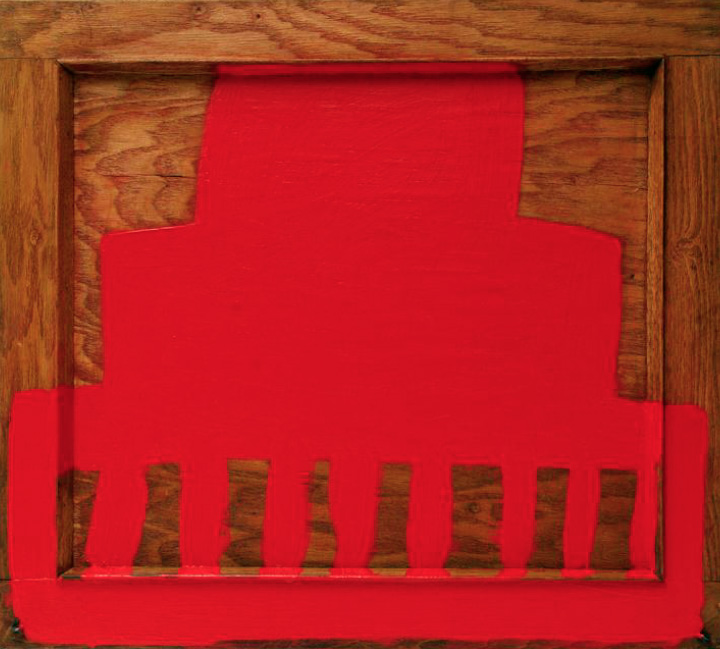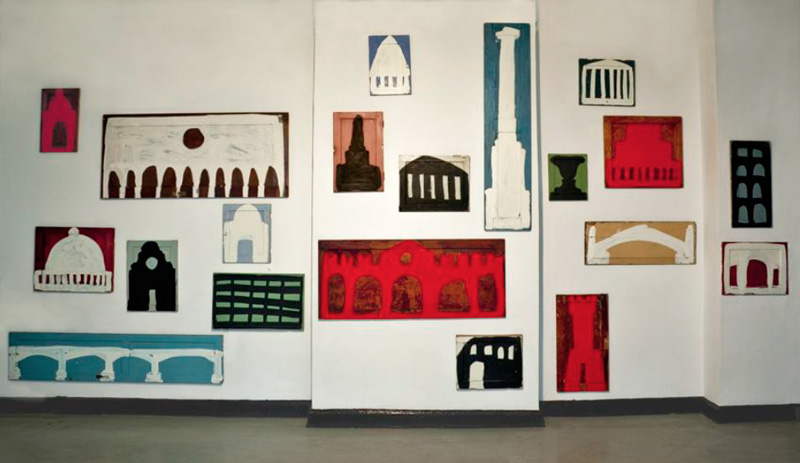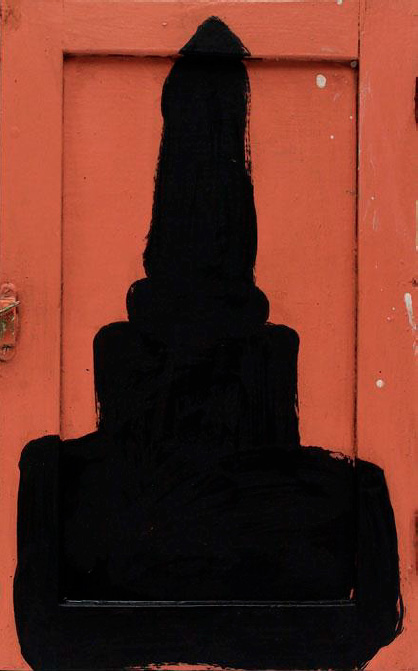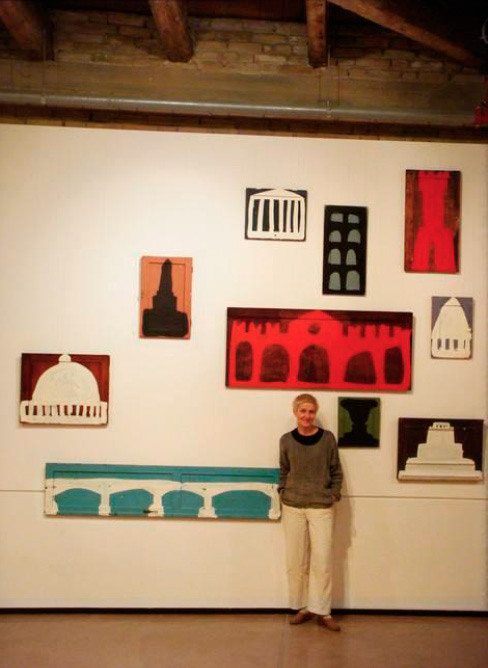ROMAN HOLIDAY
since 2008
It is the Architecture in general in all its original purity and variety of the typology or forms: cupolas, columns, arches, basilicas, towers and simply buildings. Lined up all together, they compose a city assembled of different-caliber modules that set the play of scales – the structures seem “arranged” now anear, now afar. Given the technical minimalism of execution, when the entire outline of a building is rendered in single stoke of a broad brush in such a manner that it is read in one piece at one blow, as a single stain – nuances acquire all the importance. Each time, the basis is readily found for one or another structure: a bridge is set against the pale blue background; an arch – against the green, a cupola – against the blue, a vallum – against the brown, etc. An edifice is given the environment, ethereality and emotionally-tinted space. At the same time, the austere and grand simplicity of the forms splendidly determines the no man’s character of this architecture that ascends to the world of Plato’s ideas – eide. A painterly object emerges at the conjunction of fundamental iconographic forms-signs and a warm domesticated texture of the doors. Koldobskaya evinces a constant, persistent interest to certain images that are essential and archetypal in their iconography. They are often reduced to signs, symbols and emblems. We see the way well-established architectural forms reveal to us the meanings that are not temporal and susceptible to the historical recession, but timeless.
Gleb Ershov, art historian

Mausoleum, 2008, door from wardrobe painted with enamel

Roman Holiday on Capital of Nowhere exhibition, 2013, Berlin

Obelisk, 2008, door painted with enamel

Roman Holiday on Capital of Nowhere exhibition, 2013, Venice